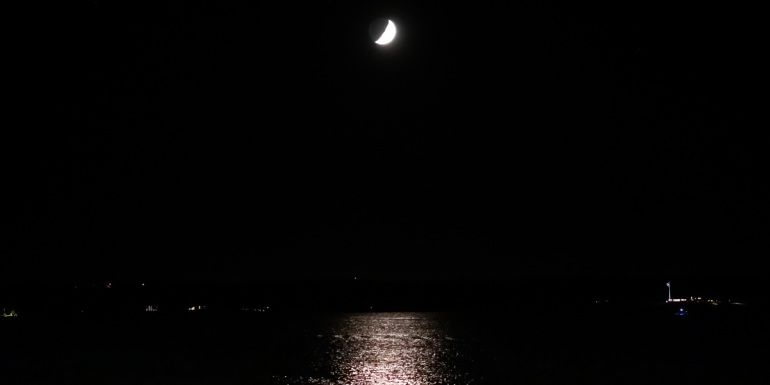By Jessica Else | Photo courtesy GLAS
When the University of Chicago decided to sell Yerkes Observatory in Williams Bay in the summer of 2018, the community education programs connected to the observatory were in jeopardy of ending as well. Instead of letting those programs fade, a group of dedicated astronomy experts who had worked at Yerkes founded a nonprofit organization to continue these educational outreach programs, and named it Geneva Lake Astrophysics and STEAM (GLAS).
Headquartered today on the campus of Inspiration Ministries, GLAS provides educational experiences to local students in grades K through 12, as well as opportunities for college students to participate in research projects and community outreach programs, like the organization’s popular stargazing events.
“The goal was to continue these educational programs that had taken years to get going,” says Adam McCulloch, education and outreach manager at GLAS. “We cater to all grade levels, and we have our public programs.”
GLAS has the ability to bring its portable planetarium to K-12 classrooms in the area, teaching students about the basics of astronomy and astrophysics, including important concepts like light pollution. In addition to these programs in the public schools, the nonprofit also leads presentations for homeschool groups and hosts afterschool programs for middle and high school students every Tuesday, Wednesday and Thursday.
“Through our afterschool programs, students can learn how to code, learn engineering skills, and do astronomy and data collection,” McCulloch says. “I’m working with one high school student right now with data collected last month from a telescope in Sonoma, California.”
That telescope is located at California’s Stone Edge Observatory, and students are able to access data from the telescope to build databases of astronomical activities and study light pollution. Technology has advanced enough that students can remotely work with the telescope from anywhere, McCulloch explains. “You can actually take exposures and collect astronomical data from your phone and that’s incredible,” McCulloch says.
During the summer, GLAS offers a paid summer intern program open to high school and college students, many of whom are already working with GLAS on projects throughout the year. “Because we only do paid internships, these students are basically able to have a part-time job while getting to learn and work on projects they are already interested in,” McCulloch says.
Many students who work with GLAS take part in the organization’s Dark Skies Initiative. The project collects data on local light pollution levels and uses this information to promote community education around the benefits of dark skies for wildlife, human health, boating safety and astronomy.
As part of the Dark Skies Initiative, students have partnered with the Lakeshore Environment and Night Sky Sensor (LENSS) program to design and construct a remote-operated sky quality meter that measures the amount of light pollution in the area. GLAS students can then deploy and use sensors to plot light pollution nightly, and can use that data to monitor how light pollution changes year over year. Using this data, GLAS promotes educational outreach efforts surrounding the importance of dark skies: setting up informational tables at area events, sharing their findings through community talks at local libraries and hosting community star parties.
The star parties, which are open to the public, are often organized around astronomical events like the 2020 conjunction of Jupiter and Saturn that was known as the Christmas Star. At these parties, GLAS provides telescopes for attendees to use, and invites experts to explain what people are seeing through these telescopes. Star parties can also involve trivia and small prizes.
“One of the nice things about astronomy is that it really doesn’t matter what age you are, if you look through a telescope and see the rings of Saturn, you are going to be fascinated,” McCulloch says. “It’s a good way to work with the community and get people engaged.”
ASTRONOMY FOR ALL
IDATA program brings astronomy education to blind and visually impaired students
One of the goals of GLAS is to increase astronomy’s accessibility to include all students, even those with disabilities like blindness and visual impairment. Upon its founding in 2018, GLAS assumed the administration of a three-year, grant-funded project from the National Science Foundation called Innovators Developing Accessible Tools for Astronomy (IDATA), designed
to engage blind and visually impaired high school students in the study of astronomy and the development of adaptive software to assist their experience. Partnering with the Wisconsin Center for the Blind and Visually Impaired in Janesville, the IDATA program aims to teach computational thinking, one of the building blocks of astronomy, and to represent data collected from telescopes in ways that are meaningful to students with disabilities, including through sound and three-dimensional charts.
“In IDATA, students with and without visual impairments work together to design and refine tools to help everyone experience the wonder of the stars.”
— Excerpted from a GLAS informational video about IDATA





